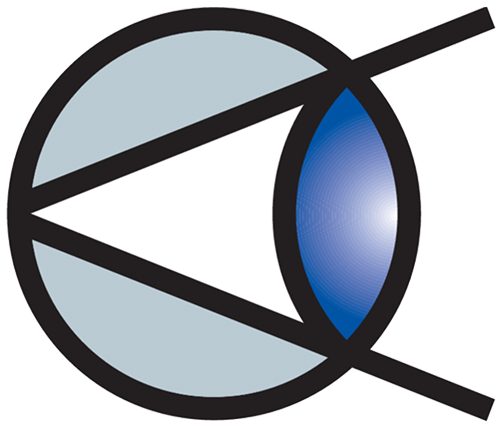Retinal Vein Occlusion Management
At American Eye Care Center, we provide specialized care for Retinal Vein Occlusion (RVO), a condition that can lead to significant vision loss if not promptly diagnosed and treated. Retinal Vein Occlusion occurs when a vein in the retina becomes blocked, leading to fluid leakage, swelling, and possible damage to the retina. Early detection and tailored management are essential for restoring eye health and preventing further complications.
What is Retinal Vein Occlusion (RVO)?
Retinal Vein Occlusion (RVO) is a condition in which one of the veins in the retina becomes blocked. The blockage restricts blood flow, causing fluid to leak into the retina, leading to swelling (edema) and damage to the retinal cells. This can result in blurry vision or even vision loss, particularly in the affected part of the retina. There are two main types of RVO:
- Branch Retinal Vein Occlusion (BRVO): This occurs when a blockage happens in one of the smaller branches of the retinal vein. It is more common and often results in vision problems in just one quadrant of the retina.
- Central Retinal Vein Occlusion (CRVO): This is a more severe form, where the main retinal vein becomes blocked, causing widespread retinal swelling and more significant vision loss.
RVO can occur due to various risk factors, including age, high blood pressure, diabetes, high cholesterol, or even blood clotting disorders.
Symptoms of Retinal Vein Occlusion
The symptoms of RVO vary depending on the severity and location of the blockage but may include:
- Sudden, painless loss of vision in one eye
- Blurry or distorted vision
- Swelling in the central or peripheral vision
- A shadow or “curtain” in part of your vision
If you experience any of these symptoms, it’s essential to seek immediate medical attention. Early intervention can help prevent permanent damage to the retina and preserve your vision.
Diagnosis of Retinal Vein Occlusion
If we suspect you have Retinal Vein Occlusion, we will perform a comprehensive eye exam that may include the following tests:
- Fundus Photography: A detailed image of the retina helps us visualize the blood vessels and detect any swelling, hemorrhages, or blockages.
- Optical Coherence Tomography (OCT): OCT uses light waves to take detailed cross-sectional images of the retina, allowing us to assess the degree of swelling (macular edema) and retinal damage.
- Fluorescein Angiography: This test involves injecting a special dye into your bloodstream to highlight the blood vessels in the retina. It helps us identify areas of leakage, blockages, and other abnormal blood vessel activity.
- Visual Field Test: This test checks for areas of vision loss or distortion caused by the blockage.
Treatment for Retinal Vein Occlusion
The treatment for RVO depends on the type, severity, and specific symptoms you are experiencing. Our goal is to reduce swelling, restore normal blood flow, and prevent further damage to the retina. Treatment options may include:
- Anti-VEGF Injections: These injections target and block the protein that causes abnormal blood vessel growth and leakage. Anti-VEGF treatments, such as Lucentis, Eylea, and Avastin, are commonly used to reduce macular edema and improve vision.
- Steroid Injections: In some cases, corticosteroid injections may be used to reduce inflammation and swelling in the retina. Steroids can be particularly effective in treating macular edema caused by RVO.
- Laser Therapy: If there is significant retinal damage or leakage, Laser Photocoagulationmay be used to treat abnormal blood vessels and reduce swelling. This treatment can help seal leaking blood vessels and prevent further vision loss.
- Surgery: In rare cases, if RVO leads to complications such as retinal hemorrhages or macular ischemia, surgery may be considered to address the underlying issues and improve vision.
Why Early Diagnosis and Treatment Matter
Timely diagnosis and treatment of Retinal Vein Occlusion are crucial to preserving vision. The sooner RVO is detected, the more effective the treatments are in reducing swelling, preventing permanent damage to the retina, and restoring vision. If left untreated, RVO can result in long-term vision impairment or even blindness.
Why Choose American Eye Care Center for RVO Management?
At American Eye Care Center, we specialize in the diagnosis and management of Retinal Vein Occlusion. Our team is dedicated to providing you with the most advanced treatments and personalized care to restore and protect your vision. Here’s why you should choose us for your RVO management:
- Expert Care: Our experienced team of ophthalmologists is trained in the latest diagnostic and treatment techniques for RVO. We are committed to providing you with the best care possible.
- Advanced Technology: We use cutting-edge diagnostic tools, such as OCT, fluorescein angiography, and retinal imaging, to detect RVO early and monitor its progression.
- Tailored Treatment Plans: We understand that each patient is unique, and we develop individualized treatment plans based on your specific needs and the severity of your condition.
- Comprehensive Follow-Up: After treatment, we provide continuous monitoring and follow-up care to ensure that your condition is managed effectively and to prevent future complications.
- Patient Education: We believe in educating our patients about their condition and treatment options, empowering you to make informed decisions about your eye health.
Schedule Your RVO Consultation Today
If you suspect you may have Retinal Vein Occlusion or have been diagnosed with RVO, don’t wait to seek treatment. Early intervention is key to preserving your vision. Contact us today to schedule a consultation with one of our experienced specialists. We are here to provide you with the expert care and support you need to restore and protect your eye health.



